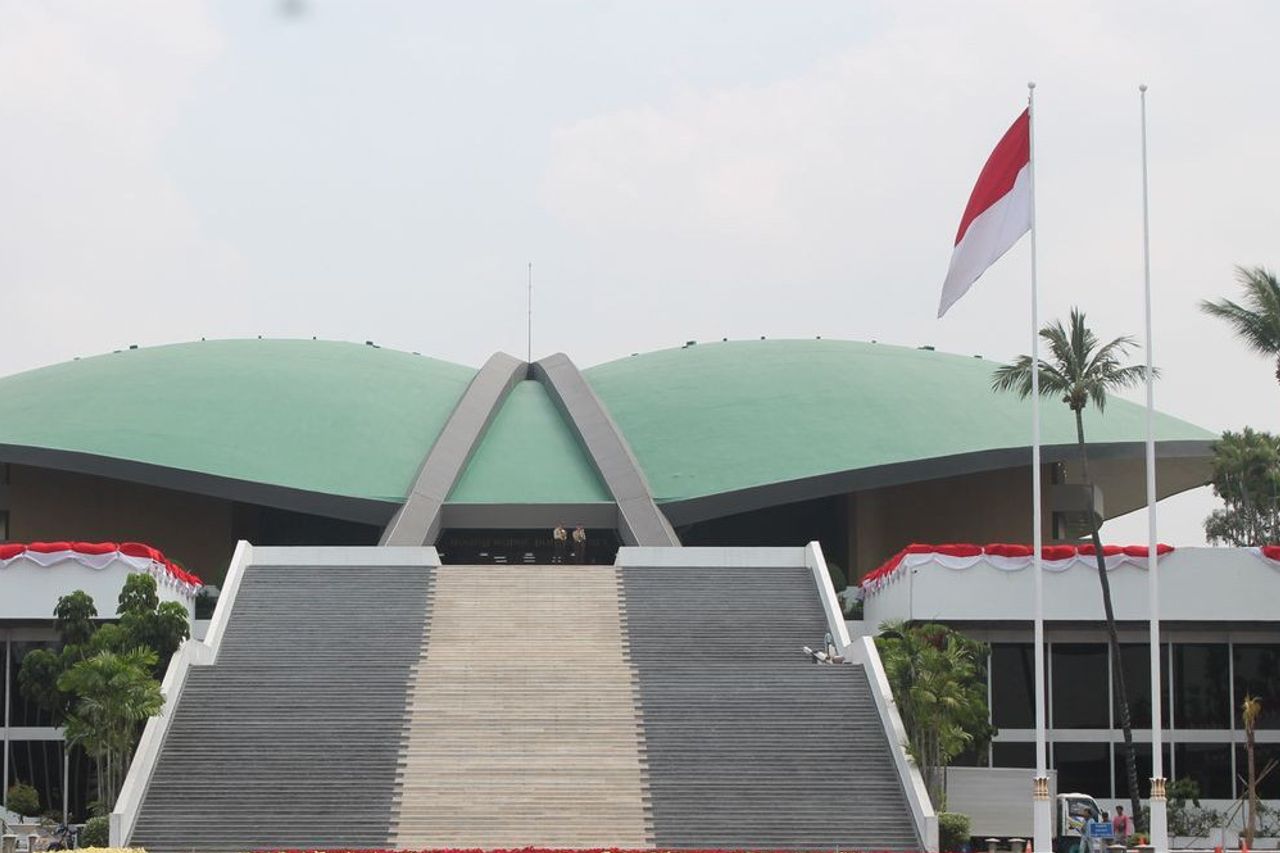DPR Baleg, Airlangga, Sri Mulyani, Agree On The Employment Cluster On The Job Creation Bill To Be Discussed Last

JAKARTA - The DPR RI Legislation Body (Baleg) held a meeting regarding the draft Omnibus Law on Work Creation with the government, in this case Coordinating Minister for the Economy Airlangga Hartarto, and Minister of Finance Sri Mulyani. Chairman of Baleg Supratman Andi Agtas said, regarding the labor sector, the final discussion of the entire cluster in the Ominus Law draft of the Job Creation Bill by the DPR and the Government will be discussed.
As is well known, this labor cluster has received a lot of attention because its substance is considered not in favor of the welfare of workers or labor. This cluster is considered to be profitable for entrepreneurs or investors.
"Regarding the matter of which we discuss, the precedence will be agreed upon at the Panja meeting. Our agreement, the main thing is to prioritize cluster discussions where there are no public problems," said Supratman, at a Baleg meeting via live broadcast in Jakarta, Tuesday, 14 April.
Then, Suptraman said, the Baleg meeting also agreed to form a Work Committee or Working Committee on the Job Creation Bill. The DPR Panja will invite stakeholders and resource persons to discuss the Omnibus Law Bill. The results can then be used as material for consideration by the factions in the parliament to compile an inventory of problems (DIM).
DIM will be collected after the aspiration absorption is completed. The fraction is said to be able to compose DIM after submitting it for improvement.
"This Panja will immediately conduct a public test, ask for input from the community, both from the campus and from friends who are directly affected. Both the pros and cons, we will ask for their opinions," he said.
Supratman explained that the purpose of forming the Panja was for this bill to make a good contribution to the country's economy.
The discussion on DIM is approved to be carried out based on the grouping or cluster of material fields in the draft law. The discussion will prioritize material that does not have a systemic impact or does not get rejection from the community. DIM discussion will start with 'easy' content material and proceed to 'difficult' content material.
Previously, the Coordinating Minister for the Economy Airlangga Hartarto had presented the omnibus law draft on the Job Creation Bill which was the government's proposal in a joint working meeting with the DPR Legislation Body (Baleg). He said that this bill aims to create a prosperous, just, and prosperous society based on Pancasila and the 1945 Constitution.
"In terms of the law itself, the direction is to create a prosperous, just, and prosperous Indonesian society based on Pancasila and the Constitution through efforts to fulfill citizens' rights to work rights and decent living through Job Creation," he said.
Through the Job Creation Bill, said Airlangga, it would create wide and even job opportunities throughout the country. This bill also provides protection for MSMEs, increases the protection of workers' welfare, and accelerates national strategic projects.
Airlangga said, the Job Creation Bill was part of the government's strategic steps to realize the vision of an Indonesia that was sovereign, advanced, just, and prosperous in 2045. This is because, in general, the Job Creation Bill is proposed to carry out a transformation in the economic sector.
"There are 11 clusters. The transformation carried out in the economic sector is a fundamental problem related to regulatory obesity related to improving competitiveness, then related to employment rates, then related to ease of doing business, related to MSMEs and legal certainty," he said.
The following are eleven clusters for discussion of the Job Creation Bill:
1. Simplification of Licensing (52 laws, 1,042 articles)
2. Investment Requirements (4 laws, 9 articles)
3. Manpower (3 laws, 63 articles)
4. Ease, Empowerment, and Protection of MSMEs and Cooperatives (3 laws, 6 articles)
5. Ease of Doing Business (9 laws, 20 articles)
6. Research and Innovation Support (1 Law, 1 Article)
7. Government Administration (2 laws, 11 articles)
8. Imposition of Sanctions (new norms)
9.Land Acquisition (2 laws, 14 articles)
10.National Strategic Investments and Projects (new norm)
11. Economic Zones (3 laws, 37 articles).
PDIP Faction Asked Employment Cluster to Be Separated
At the meeting, the PDIP faction of the DPR RI demanded that the government revise the draft Work Creation Bill which was prepared using the Omnibus Law method. One of them is removing the labor cluster from the Job Creation Bill because of the large number of rejections from workers.
Member of the PDIP Faction who is also Deputy Chair of the Legislation Body of the DPR, Rieke Diah Pitaloka, said that manpower affairs are downstream from the business sector so that discussions can be carried out separately and comprehensively at another time. Moreover, the conditions of the COVID-19 pandemic have resulted in many factories closing and workers being laid off.
"To reduce the previously mentioned response from the public, especially labor, it is better if the labor cluster is separated," said Rieke.
As is known, in the draft Job Creation Bill, the labor cluster consists of 63 articles and will impact 3 existing laws. This cluster is one that has received a lot of resistance because its contents are detrimental to the working class.
